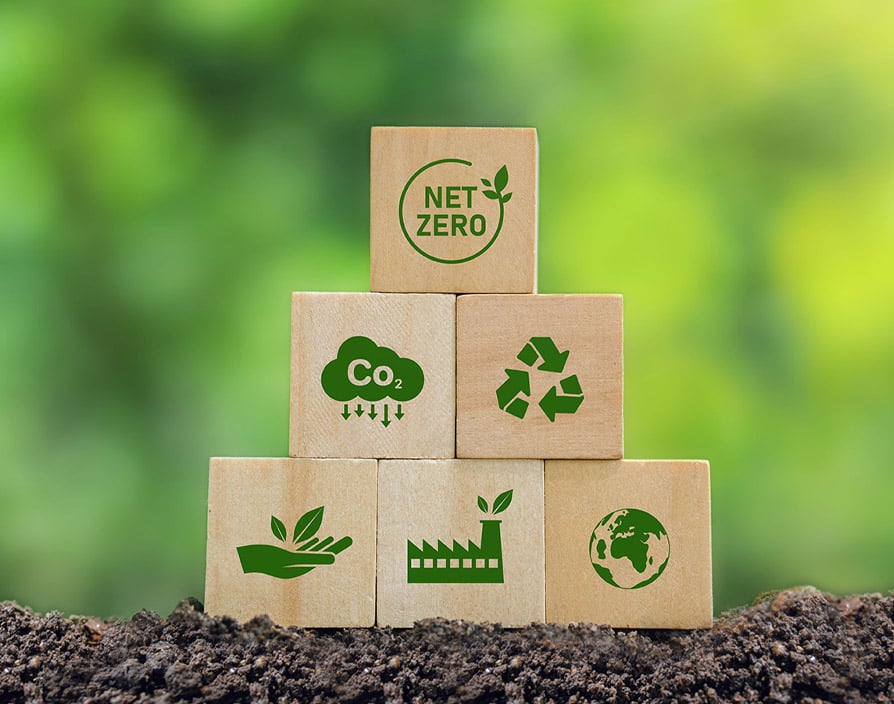There is a growing expectation among customers, clients, and employees of UK businesses for their owners and leaders to understand decarbonisation, as well as be able to articulate how their business is taking positive steps to becoming more environmentally sustainable.
We have reached a point where big business is pretty good at this. It’s hard to think of a major household brand name that doesn’t have a part of its website or packaging dedicated solely to telling us how they’re striving to be ever more green It’s a clear sign that there is a commercial benefit in understanding the issues and taking action – going green can help boost bottom line growth and long-term business sustainability.
For smaller businesses, especially start- ups in their formative years, it’s often a different story. These business owners are regularly stretched for resource as they pour every hour into getting their enterprises off the ground. According to data surveyed by the British Business Bank, many small business owners don’t feel they fully understand how terms like ‘net zero’, ‘carbon neutral’ or ‘carbon footprint’ apply to their businesses. More than half (54%) also think that the language and terminology around decarbonisation is over complex and 44% said they didn’t know where to look to get more information on the subject.
It’s one of the reasons that we launched our #GreenToGrow campaign and a dedicated ‘Green Decoder’ that is designed to help small businesses navigate their way through their own decarbonisation journey. We also took time to speak to Start Up Loans recipients that have put environmental sustainability at the heart what they do. Below, they share their insight into the topic of decarbonisation, including the challenges and opportunities they are working through as small business owners.
Jeroo Doodhmal, founder of Pip and Henry:
“When I first became a mum, I was amazed not only at how much stuff we needed for our daughter but also how unsustainable and non-recyclable so many children’s shoes were. Our mission is to help children take their first steps into the world more mindfully. The recycling scheme is really a key part of our offering. When a customer is finished with their current pair of shoes, they can send them back to Pip and Henry to be recycled, no matter the condition, in exchange for £10 off their next order.
“While we create sustainable products, we do have an international supply chain which results in a greater carbon footprint than if we were entirely UK-based. Because a lot of our sustainable materials such as pineapple leaves and coconut fibres are sourced abroad, that’s likely to be an ongoing challenge.
“There is a lot of energy and ambition among small business owners to make their operations sustainable and net-zero, but I think it’s fair to say that in practice it’s more complicated to implement both at the same time without consistent support and access to the right information.”
Ben Caspary, Founder of Booheads:
“I created Booheads in November 2020 to bring sustainably sourced, biodegradable bamboo toothbrush heads to customers seeking an alternative to the disposable plastic versions that end up in landfill.
“Creating sustainable products and growing a sustainable business are very different things, but the key to achieving both is applying a thoughtful, long-term view to your decision making.
“Supply chain and production costs are make or break for small businesses, and the associated carbon footprint is often beyond an owners control. As an e-commerce business I can’t control whether our courier partners use fleets of low carbon or electric vehicles, for example. Needless to say, if they did then that would be welcomed, but what matters to me managing the growth of Booheads is that our customers receive orders on time and at a cost that keeps us on an upward trajectory.
Kate Barnard, Founder of Enjoy the Air:
“I founded Enjoy The Air in the height of the pandemic, in December 2020, to primarily address outside air quality as it links to 10 of the 17 UN’s Sustainable Development Goals. We support cities by providing data and analytics, specifically in the areas of air quality and mobility.
“Two things are clear, there’s no silver bullet for this problem; and there needs to be better coordination between government, private sector and academic leaders to make education around climate change terminology simpler and more coherent. There also needs to be far better weighting of support through grants or reliefs for small businesses who are trying to lower their carbon footprint as they grow.
“When you’re starting a business for the first time, you’re learning everything at once. You need guidance to make the right long-term decisions and to choose the options that enable you to grow ever greener. The first step we need to take as a business community is accepting that for as long as people are presented with bad options and inconsistent guidance, we can’t hold them solely accountable for their decisions.
“We ought not rush to condemn businesses that manufacture abroad as being unconscientious from a carbon standpoint. The issue is far more complex and nuanced. For example, sourcing products internationally often means people and communities in developing world countries receive much needed investment. It’s not an issue that the UK can solve within its own borders. As part of global community, the only way we will make meaningful progress is to have a united and data-driven, global approach.“
“
Share via:


















































